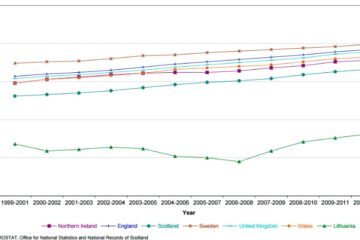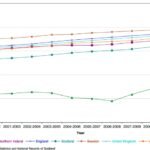Rangers Football Club is facing a significant challenge as they prepare for the possibility of relocating to Hampden Park. With ongoing renovations at Ibrox Stadium causing delays, the club is considering a temporary move to the national stadium. This decision comes amidst concerns about the impact on the team’s performance and the financial implications of such a move. The situation has sparked a series of crisis talks and raised questions about the future of the club’s home games.
Hampden Park as a Temporary Home
Rangers are exploring the option of using Hampden Park as their temporary home while renovations at Ibrox continue. The club’s chairman, John Bennett, has been in discussions with the Scottish Football Association to secure the national stadium for the foreseeable future. This move is seen as a necessary step to ensure that Rangers can continue to host their home games without interruption. However, the decision is not without its challenges, as the club must navigate logistical and financial hurdles to make the relocation feasible.
The primary concern for Rangers is the condition of the pitch at Hampden Park. Recent concerts held at the stadium have left the playing surface in need of significant repairs. The club is considering the use of “lay and play” technology to quickly install a new pitch, but this comes at a considerable cost. Additionally, there are concerns about the availability of Hampden Park for all of Rangers’ home games, as the stadium is also used for other events and by other teams.

Another challenge is the financial impact of the move. Renting Hampden Park and making the necessary upgrades to the pitch will require a substantial investment. Rangers will need to balance these costs with the potential revenue loss from not being able to play at Ibrox. The club is also exploring the possibility of compensating Queen’s Park, the current tenants of Hampden Park, to ensure they can use the stadium for the entire duration of the renovations.
Delays in Ibrox Renovations
The renovations at Ibrox Stadium have been plagued by delays, causing significant uncertainty for Rangers. The work on the Copland Road stand, in particular, has been delayed due to issues with the supply of materials. The global shipping crisis, exacerbated by conflicts in the Middle East and Ukraine, has resulted in delays in the delivery of essential materials needed for the renovation. As a result, the project, which was supposed to be completed before the start of the new season, is now expected to extend into October.
These delays have forced Rangers to consider alternative venues for their home games. The club had initially planned to complete the renovations during the off-season, but the unforeseen delays have made this impossible. The situation has been further complicated by the departure of former chief executive James Bisgrove, who was overseeing the project. His departure has left a leadership void that the club is struggling to fill.
The uncertainty surrounding the completion date of the renovations has also affected the team’s preparations for the new season. Rangers are set to kick off their domestic campaign away to Hearts, but they face the prospect of playing their first few home games at a different venue. This disruption could have a significant impact on the team’s performance, as they will need to adapt to a new playing environment.
Financial and Logistical Challenges
The potential move to Hampden Park presents several financial and logistical challenges for Rangers. The cost of renting the stadium and upgrading the pitch is a significant concern. The club will need to find a way to cover these expenses while also managing the ongoing costs of the renovations at Ibrox. Additionally, there are logistical challenges associated with moving to a new venue, including ensuring that the stadium meets the requirements for hosting both domestic and European matches.
One of the key financial challenges is the potential loss of revenue from not being able to play at Ibrox. The club relies heavily on matchday revenue, and the move to Hampden Park could result in a decrease in ticket sales and other matchday income. Rangers will need to find ways to mitigate this loss, such as negotiating favorable terms with the Scottish Football Association and exploring alternative revenue streams.
Logistically, the move to Hampden Park will require careful planning and coordination. The club will need to ensure that the stadium is ready to host their home games, including making any necessary upgrades to the facilities. Additionally, Rangers will need to work with the Scottish Football Association and other stakeholders to coordinate the use of the stadium for their matches. This will involve scheduling considerations, as Hampden Park is also used for other events and by other teams.
Despite these challenges, Rangers are committed to finding a solution that allows them to continue playing their home games without interruption. The club is determined to minimize the impact on their supporters and ensure that they can continue to compete at the highest level. The coming weeks will be crucial as Rangers work to finalize their plans and secure a temporary home for the new season.


















